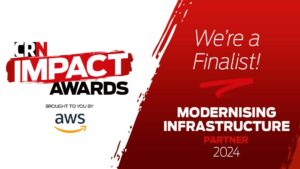Blog:

Integrating enterprise resource planning (ERP) and customer relationship management (CRM) systems can unlock a wealth of benefits for your enterprise. From improved efficiency to more streamlined processes to better customer interactions – the advantages are vast.
But rolling out a successful integration is not without its hurdles. That’s why it’s a good idea to familiarise yourself with some common obstacles that may occur during the ERP/CRM integration process, and master some actionable strategies to overcome them. Only by tackling these challenges head-on can your organisation maximise the full potential of your data streams and systems.
Data synchronisation is all about ensuring that your information remains consistent and up-to-date across both your ERP and CRM systems during integration. But challenges can – and most likely will – arise when you are trying to juggle disparate data sources, with different data formats and siloed departments only adding to the confusion. To overcome these obstacles, consider employing some smart strategies:
Data migration is the process of transferring data from one system to another – and it can become a delicate project when trying to integrate an ERP or CRM system. This is because challenges tend to arise when dealing with large datasets, and data integrity can become a real issue. Here are some tips to overcome them:
Integrating ERP and CRM systems requires seamless communication and interoperability between the two platforms. But there will likely be hurdles around incompatible systems, complex customisations and siloed data models.
That’s why your first step should be to choose compatible systems. Your ERP and CRM systems should have built-in integration capabilities or at least have the capacity to work together – so you don’t need to spend countless hours trying to code complex customisations.
You can also take advantage of integration middleware, such as APIs or integration platforms, which act as a bridge between ERP and CRM systems. They facilitate data exchange and support real-time synchronisation, which ultimately allows the two platforms to communicate effectively.
If all else fails, it’s time to reach out to some experienced integration partners. Research consultants or implementation partners who are experts at ERP and CRM integration. Their expertise can help you navigate complex integration scenarios and make a difficult situation much easier.
ERP and CRM integration is a challenging but transformative journey that, when executed well, can drive incredible business benefits. By recognising these common integration challenges and deploying the right strategies at the right time, your enterprise can pave the way for a seamless integration.
Learn more about how to harness the full potential of your integrated ERP and CRM systems, optimising your processes and delivering even better customer experiences.

Wild Tech has been recognised for the work that we did in undertaking an end-to-end modernisation activity for Uncle Bills.
Read More
AI has the potential to underpin so much of the manufacturing process and drive the industry 4.0 transformational change across the sector.
Read More
Will recent AI advances threaten human existence or, conversely, fulfil all our desires –or is this just the latest in a long series of repetitive hype cycles that will soon come crashing down?
Read MoreWe’re here to listen and to solve your problems then help you to digitalise your business. Let’s talk.